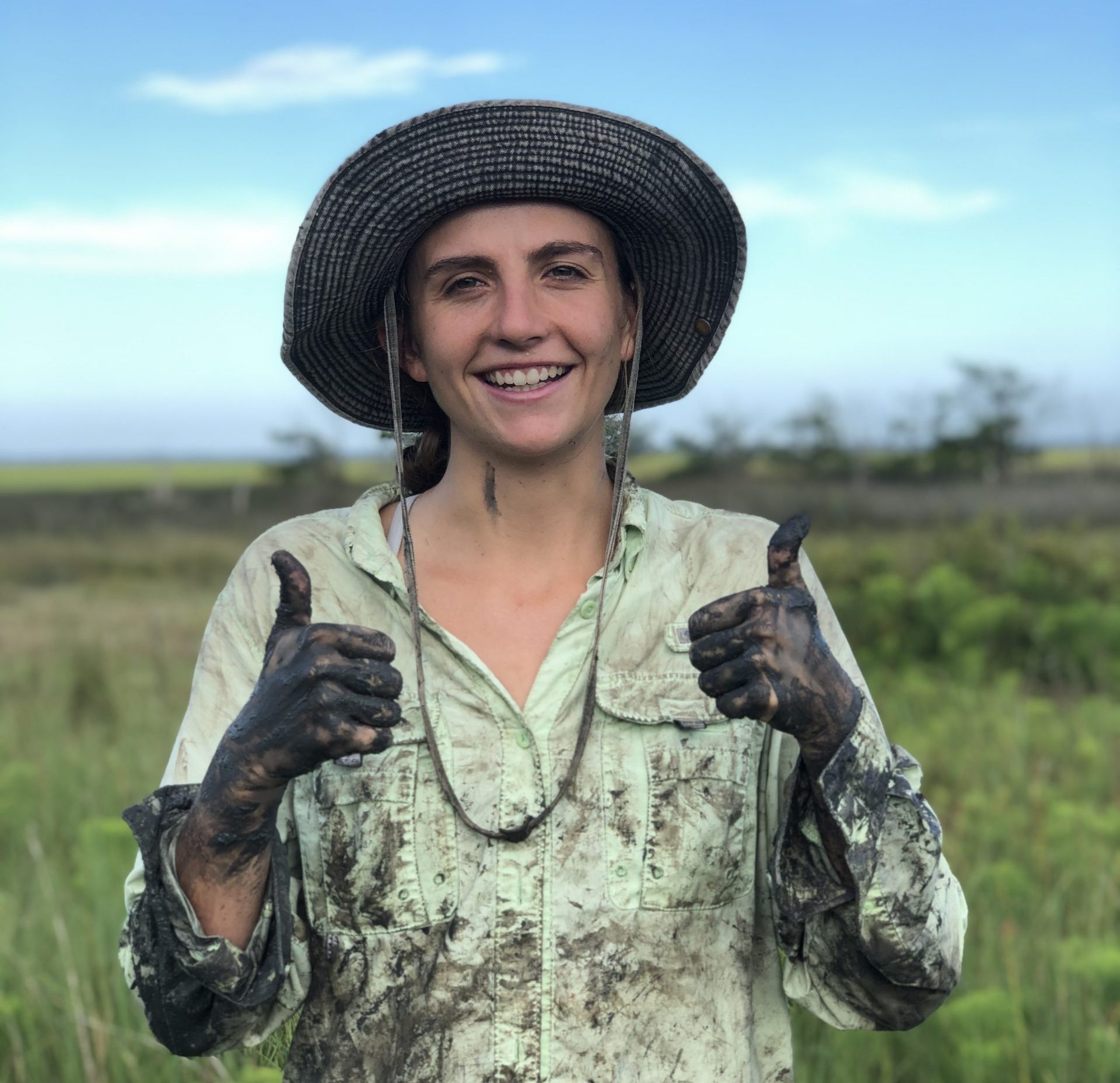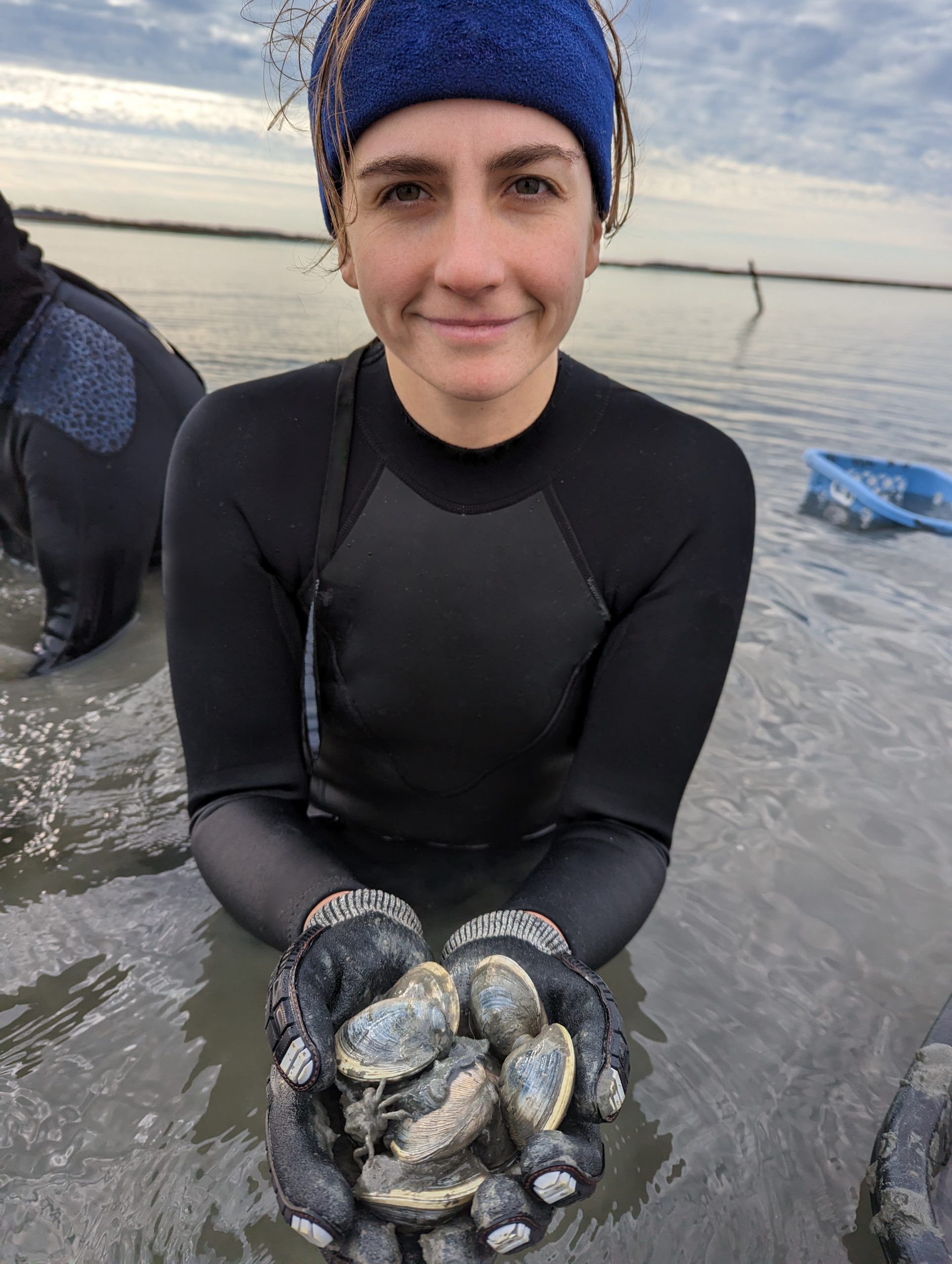Congratulations to Sydney Williams, winner of an aquaculture fellowship from the Florida Sea Grant. With this support, Williams, a fourth year Ph.D. candidate in environmental engineering sciences, will help advance regulation and policy reform for seagrass and clam restoration aquaculture. This will involve working with aquaculturists, legislators, state agencies and stakeholders to develop regulatory guidelines for use in project planning and propose changes to rulemaking language to increase clarity around the development of restoration projects.
“There’s a critical movement going on in Florida right now around the potential role of aquaculture in growing both seagrass and shellfish to restore coastal ecosystems,” said Williams.

Many sectors, for example, are interested in the synergistic relationship between seagrass and clams, and its impact on ecosystem health. Researchers hypothesize that as clams remove suspended particles from the water column when they feed, they improve water clarity and potentially promote seagrass growth by increasing light penetration. The process of undertaking projects to study this topic and others of interest to people in the aquaculture sector can be hindered by unclear permitting language and differing priorities between regulatory agencies. This can contribute to a disconnect between the scientists who conduct research and the regulatory agencies that approve projects.
“There’s room for improvement to better support this movement,” said Williams.
In collaboration with a team of researchers, extension agents and policy experts, Williams will speak with stakeholders across the state to identify improvements in the permitting process, bridge scientists and regulatory perspectives, and guide reform.
This work aligns with Sydney’s research on how bivalves support the transportation and removal of carbon and nitrogen in coastal ecosystems. This research is relevant to improving water quality in areas affected by nutrient pollution and for mitigating climate impacts in areas with high carbon emissions.
Williams is excited about opportunities for continued professional development and networking with diverse groups of people that come with the fellowship experience.
“These collaborative environments are where a lot of creativity flows and friendships are made.”

Project team:
Florida Sea Grant: Angela Collins, Ph.D., Florida Sea Grant UF/IFAS Extension Scientist, Savanna Barry, Ph.D., Regional Specialized Extension Agent and Leslie Sturmer, County Extension Agent.
University of Florida: Shirley Baker, Ph.D., associate professor in the School of Forest, Fisheries and Geomatics Sciences; Todd Osborne, Ph.D., associate professor in the Department of Soil, Water and Ecosystem Services; Joshua Patterson, Ph.D., associate professor in the School of Forest, Fisheries and Geomatics Sciences; Laura Reynolds, Ph.D., assistant professor in the Department of Soil, Water and Ecosystem Services; and Ashley Smyth, Ph.D., assistant professor in the Department of Soil, Water and Ecosystem Services.